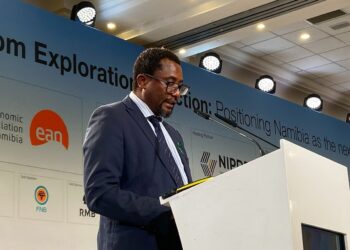
Namibia is facing an acute housing crisis driven by rapid urbanisation, with the urban population doubling from 30% at independence to over 50% today, an official has revealed.
Erongo Council Chief Regional Officer Sam Ntelamo highlighted the urgent need for housing, estimating that approximately two million additional houses will be required to accommodate urban residents in the near future.
“Unlike the urbanisation of much of the developed world that was fuelled by large-scale industrialisation, our cities, like most on the African continent, are rapidly expanding despite industrialisation and job creation advancing at the required scale,” Ntelamo emphasised during a stakeholders’ workshop.
He pointed out that this rapid urbanisation has strained infrastructure and forced many families into informal settlements lacking basic services.
Currently, he said, around 230,000 families live in such settlements across Namibia, illustrating the scale of the challenge.
“Namibia is faced with a generational task to effectively provide adequate housing and sanitation for over 300,000 Namibian households. The vast majority of these constitute the ultra-low and low-income households who cannot afford nor access the formal housing market,” he stressed.
Ntelamo noted that efforts include initiatives aimed at providing secure land tenure and promoting affordable housing solutions for low-income urban dwellers.
Despite these efforts, challenges such as high land costs, bureaucratic complexities, and limited financial resources continue to hinder progress.
“Despite these efforts, challenges remain. The high input cost of land and urban development, bureaucratic hurdles, and limited financial resources are some of the barriers we must overcome. However, we cannot afford to be complacent. It is our collective responsibility to ensure that no Namibian is left without a place to call home,” he said.
Ntelamo stressed the importance of collaborative efforts involving both public and private sectors to expedite housing projects.
He emphasised the need for innovative financing solutions and community involvement in the planning and implementation of housing initiatives.
“Exploring innovative financing mechanisms, such as microfinance and community savings. Schemes can help bridge the funding gap for low-income households seeking to acquire land and build homes, once again the Shack Dwellers Federation comes to mind as a very innovative model,” he said.
Ministry of Urban and Rural Development’s Cornelius Thaniseb reported that urban development since 2017/2018, has resulted in 22,659 plots serviced and 15,198 houses constructed.
He said challenges include budget constraints, lengthy procurement processes, and procedural issues causing delays in appointing service providers.
Thaniseb proposed solutions such as increased budget allocations, multi-year funding strategies, and enhanced training in legislative frameworks and project management.
The Parliamentary National Council Standing Committee on Transport, Infrastructure and Housing is hosting the stakeholders’ workshop to investigate the motion on “The need to provide land for the urban poor and landless citizensâ€.
The motion, adopted by the National Council during its session in November last year, aims to establish the extent of the housing backlog in Namibia and investigate the administrative, legal, financial and other challenges faced by the urban poor in terms of access to land and housing.











